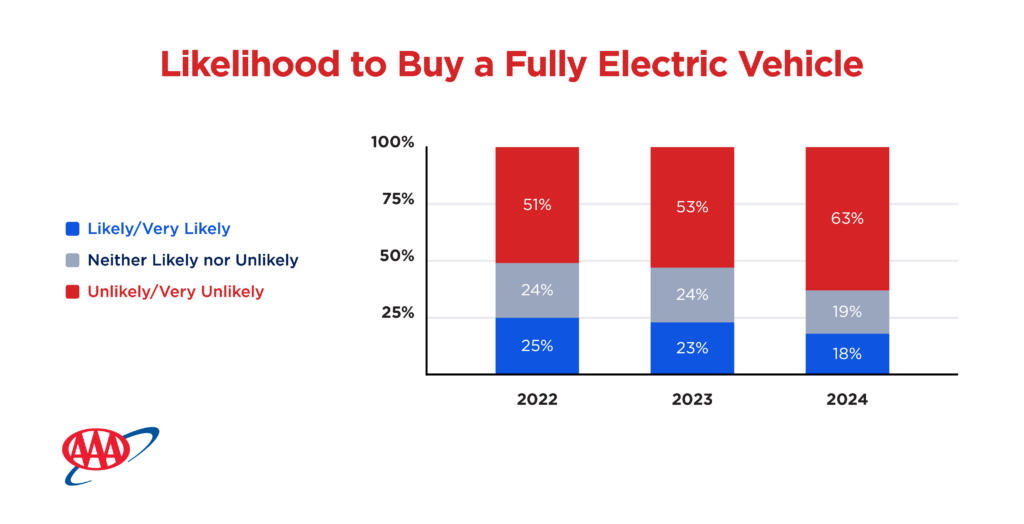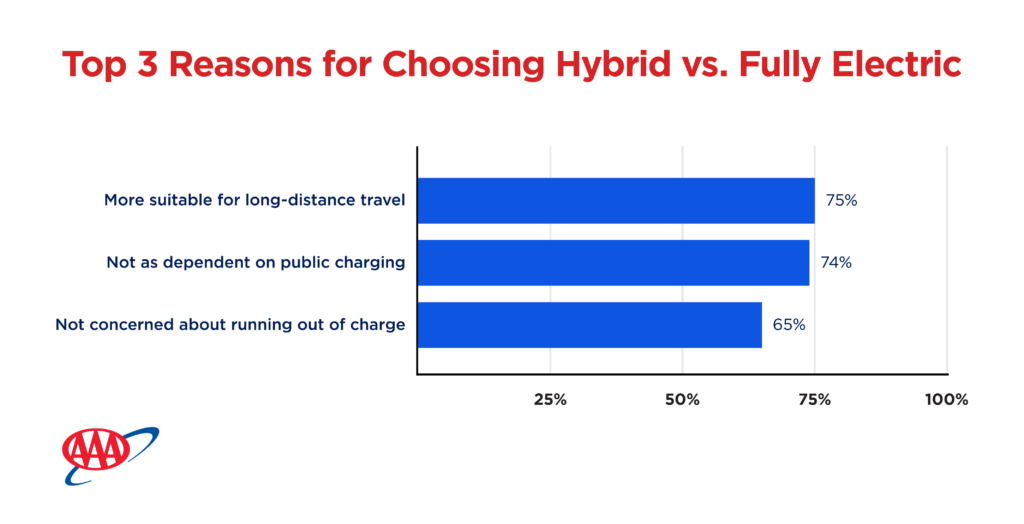- A new study suggests consumers have turned their backs on EVs.
- A vast majority (63%) said they were “unlikely or very unlikely” to purchase an EV.
- While consumers seem to have cooled on EVs, they’re more open to hybrids.
The electric revolution continues to hit speed bump, after speed bump, and a new survey is shining a grim light on the situation. In particular, a mere 18% of respondents said they were “very likely” or “likely” to buy a new or used EV.
The study was conducted by AAA, which notes that’s a 5% drop from a year ago. Even worse, the organization noted that 63% of respondents said they were “unlikely or very unlikely” to purchase an EV as their next vehicle.
More: Most Americans Aren’t Sold On EVs, Blame Charging Woes, Range, And High Costs
The latter figure should be terrifying for automakers as the number jumped 10% in a year. Furthermore, the number of undecideds – the so-called “neither likely or unlikely” – fell from 24% in 2023 to 19% this year. All of this suggests consumers have made up their minds on EVs and the answer is a resounding no.
As for why consumers are balking at EVs? The answers are the usual suspects including cost, range anxiety, and a lack of charging infrastructure. AAA also noted 30% of people “cited the inability to install a charging station where they live,” which is a common problem for apartment dwellers.

AAA’s director of automotive research, Greg Brannon, said “Early adopters who wanted an EV already have one. The remaining group of people who have yet to adopt EVs consider the practicality, cost, convenience, and ownership experience, and for some, those are big enough hurdles to keep them from making the jump to fully electric.”
While consumers aren’t sold on electric vehicles, they’re more open to hybrids. 31% of people said they would be “very likely” or “likely” to buy a hybrid.
Automakers seem to have noticed the shift as a number of them are now talking up hybrids and plug-in hybrids. This is a major change for some companies, which saw these vehicles as remnants of the past.





